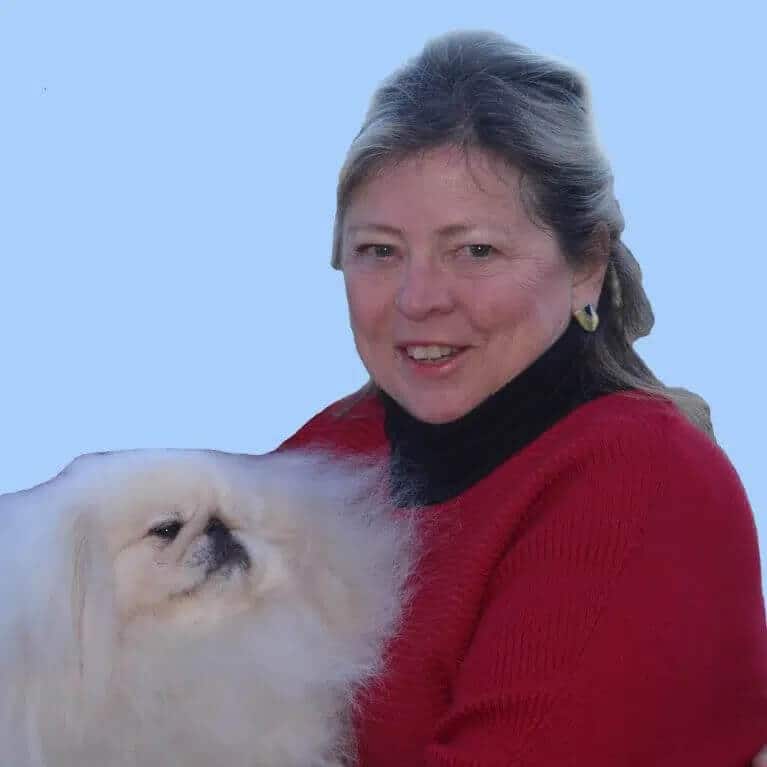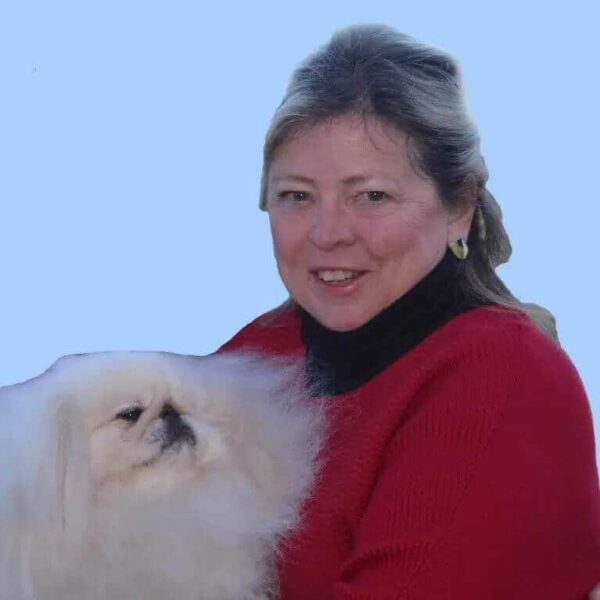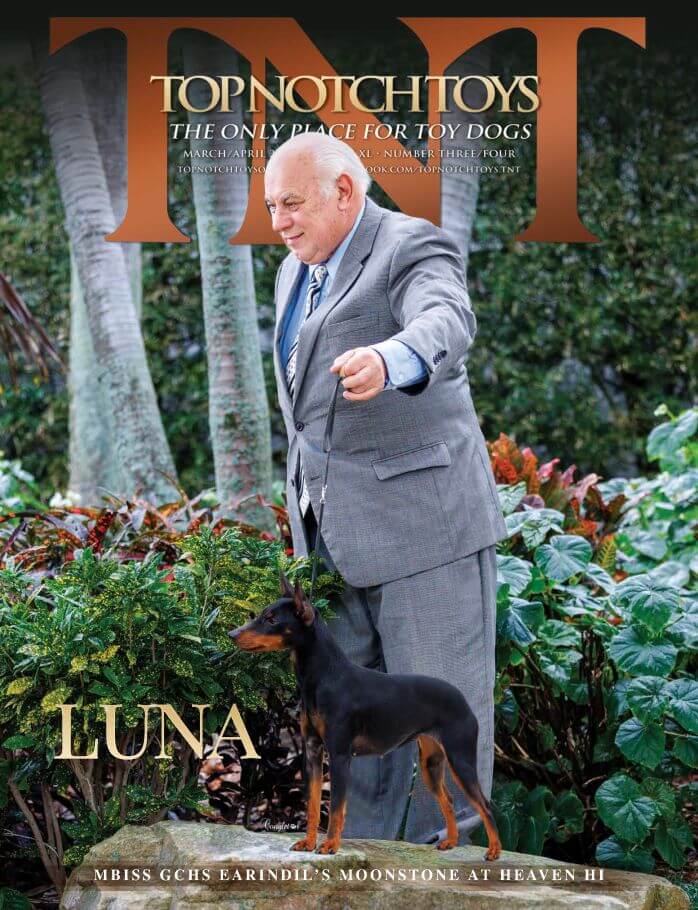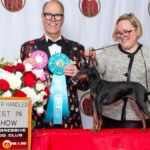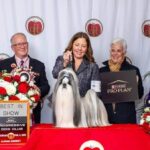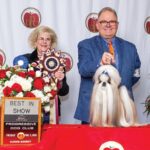Interview with a Toy Group Judge Janet Allen
Janet Allen: Since 1975, I have been involved in the sport as a breeder, owner, handler, and since 1990, a judge. I was successful in Chow Chows under the Tai Yang prefix, with multiple champions, including BIS and BISS winners. I became involved with other Oriental breeds; Pekingese, Shih Tzu, and Japanese Chins. As partner in Sing Lee Pekingese, I made up over fifty champions with numerous BIS and BISS (including two National BISS) winners. In addition, I handled (and owned) Pugs, Papillons, Yorkshire Terriers, Pomeranians, Chihuahuas, Tibetan Spaniels, and a BIS Norwegian Elkhound. Licensed for the Toy and Non-Sporting Groups, Junior Showmanship, and Best in Show, I have enjoyed judging in the United States, Canada, and Sweden, awarding CCs in England, Australia, and New Zealand, and judging all breeds in South Korea, China, and Taiwan. I have judged Regional and National Specialties in Chow Chows, Lhasa Apsos, Bulldogs, Bostons, Chinese Shar-Pei, Shiba Inu, French Bulldogs, Chihuahuas, Shih Tzu, Pekingese, Pomeranians, Papillons, Pugs, English Toy Spaniels, Cavalier King Charles Spaniels, Chinese Cresteds, Miniature Pinschers, Japanese Chins, Yorkshire Terriers, and Silky Terriers. I was honored to judge at Westminster in 2014. Retired after a career as an academic medical center administrator, I am active in local all-breed and specialty clubs, and with judges education. I am always happy to make new friends—with dogs as well as people.
Where do I live? How many years in dogs? How many years as a judge?
Janet Allen: I live in a rural community north of San Francisco. I have been “in dogs” for 45-plus years, judging for 30 years (Toy and Non-Sporting Groups).
What is my original breed? What is/was my kennel name?
Janet Allen: My original breed was the Chow Chow (Tai Yang), but I quickly added Pekingese to my home. I was in partnership for over 20 years with J. Robert Jacobsen (Sing Lee). I owner-handled many Toy and Non-Sporting breeds; besides Pekingese and Chows, notably Japanese Chins, Pugs, and Yorkshire Terriers.
Can I list a few of the notable dogs I’ve bred? Any performance or parent club titles?
Janet Allen: Some of the Pekingese I have produced include Ch. California Gold Sing, Ch. Raffles Jubilation Sing Lee, and Ch. Windemeres Gold Fever Sing Lee. These are among 12 BISA Pekingese and 20-plus BISS winners. I am recognized by the Pekingese Club of America as a Breeder of Merit, with multiple Register of Merit sires and dams. Also, I produced multiple Group and BISA winning Chow Chows, notably Ch. Tai Yangs Beefeater.
What are some of the qualities I most admire in the Toy Breeds?
Janet Allen: As form follows function, the function of Toys is to be decorative and amusing (plus some that exterminate rodents); these are qualities that I admire in Toys. I think, “Would this dog look good/be happy on my couch?” Does this dog “make me smile?”
Have I judged any Toy Breed Specialties?
Janet Allen: I have judged many Toy (and other breed) Specialties and Group Shows in the United States and worldwide. Pekingese assignments have included Pekingese Club of America, multiple Pekingese Regional Club Specialties, and Specialties in Australia, New Zealand, England, and Canada. I am pleased to be sought-out as a “Toy Specialist,” known for having gentle hands, a friendly approach, and an appreciation of breed type.
Can I offer any advice to exhibitors regarding the presentation of these “table” breeds?
Janet Allen: I believe that Toys (any breed) should be of sound body and mind, with presentation combining this with breed-specific type and appropriate grooming. There is no reason why Toys should not be outgoing and self-assured; well-socialized and trained. They need to be happy in their surroundings. They should not be expected to be “stuffed animals.” Rather, they should be inquisitive, animated, and engaging—calm but fun!
Some longtime exhibitors have “downsized” to Toys. In my opinion, has this had an impact on quality?
Janet Allen: The impact on quality by judges/breeders/exhibitors from “larger breeds” can be positive in that some bring to Toys a better understanding and value of structure and soundness. Look at the influence in the past decades of the Stacys and Beth Sweigert on the Affenpinscher breed, the Langseths (and more recently, Maripi Wooldridge) on Japanese Chins, and Karen Pricket Miller, Doug Johnson, and Jamie Hubbard on English Toy Spaniels. Toys should be treated not as delicate and sheltered, but as “real dogs.”
Toy Breeds can require special care. Do I have any advice to offer breeders, exhibitors, and judges?
Janet Allen: Toys, and really any dog, should be treated with respect and gentleness; they should be understood, but not coddled. With Toys, one needs to be aware of size/spacial differences, and this needs to be considered in one’s approach.
In my opinion, how do today’s exhibits compare with the Toy Dogs of the past?
Janet Allen: Today’s exhibits compared to the past… I think that most Toy breeds are well-represented in the show ring with (mostly) depth of quality and adherence to the Breed Standards. Pekingese have been consistent since the 1950s when Ch. Chik T’Sun of Caversham made his mark in the show ring; some grooming trends, but basically the same make and shape. Japanese Chins are much improved over the past decades; sounder, for sure. Pugs have morphed into what I see as being “cleaner,” with
less exaggeration.
Why do I think Toy Dogs can become outstanding Show Dogs?
Janet Allen: Toys can be outstanding Show Dogs, as their major purpose is as companions. As such, they need to engage with people. They are works of art with charisma. Toys are often very good at “asking for it” with a soft, beguiling expression.
If I could share my life with only one Toy Breed, which would it be and why?
Janet Allen: Pekingese will always be part of my life. You live on shared terms with them; they are independent and not demanding. (You give one a toy and they say thank you, and then go off and play with it.) They are loyal and friendly to those they know; but can be a bit aloof (but tolerant) with strangers. They are very clean in their habits and (typically) are not destructive They do not bark without a purpose. Contrary to popular belief, their coat is very easy to maintain and they have few major health problems. Their mesmerizing eyes say it all—easy to share love. I’m smitten.



